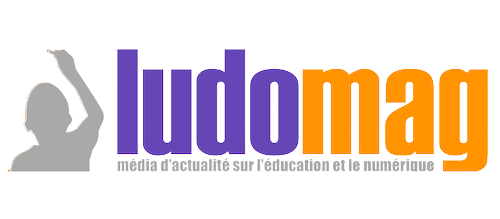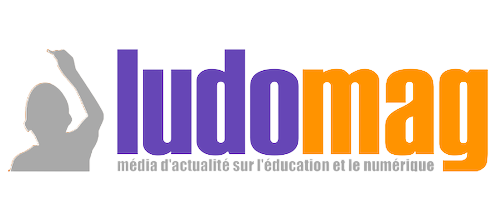Jean-François Cerisier has been a teacher-researcher in Information and Communication Sciences at the University of Poitiers since 1999. He is currently the director of the Techné laboratory and a professor at the university. His research primarily focuses on the digital transition of educational institutions, the individual appropriation of digital technologies, and the analysis of public policies in this domain. With nearly 40 years of professional experience in educational technology, Jean-François Cerisier has developed recognized expertise, which he applies to public policy evaluation projects for various ministries and evaluation bodies.
Jean-François Cerisier begins by expressing his perplexity regarding the title of this inaugural lecture: « Digital Technology in Everyday Classroom Life: Is It Devaluing? » This title is meant to be understood with a degree of irony. Although it is stated affirmatively and ends with an exclamation mark, it should be interpreted as a question, an invitation to reflect. To better grasp this question, he proposes an alternative title that more clearly expresses this nuance: « Has Digital Technology in Daily Life Become the New Norm in Schools? »
He reminds us that his daily work as a researcher involves trying to fit square pegs into round holes, exploring how education professionals integrate digital tools into their daily practices. He is particularly interested in the perceptions people have of digital technology, how these perceptions influence actual usage, and he regularly observes a significant gap between intentions and actual practices, leading him to question the reasons behind this discrepancy. His hypothesis is that individual and collective perceptions of digital technology play a central role in how we conceive and implement it in the daily experience of school life.
Digital Technology in Everyday Classroom Life
Jean-François Cerisier distinguishes between two key concepts: the everyday, which refers to the empirical, factual reality of what happens day by day in the classroom, and everydayness, which characterizes how this everyday experience is lived and interpreted by each individual. Everydayness is central to the iterative development of the everyday, with each day influencing the construction of the next. Henri Lefebvre, a French sociologist and philosopher, brilliantly demonstrated in his work Critique of Everyday Life that seemingly mundane everyday activities actually reveal the deep structure of political and social choices.
Indeed, digital technology is increasingly integrated into everyday classroom life, raising many questions about how this new reality is experienced and interpreted by different actors, be they teachers or students. This digital everyday life, far from being uniform, is characterized by its diversity and heterogeneity, varying from one class to another and from one day to the next. It consists of a complex mix of calm and urgency, structure and improvisation, as well as rituals and inventiveness. Each experience within this digital context is crucial in shaping the next day’s experience. Although often associated with the idea of routine, digital everyday life is far more complex and resists any notion of banality. The omnipresence of digital technology in society directly impacts the functioning of classrooms, where students’ digital practices transform access to information and challenge the foundations of the traditional school model. The use of digital tools in class also raises ethical and professional questions for teachers, who must navigate between institutional prescriptions, real-world realities, and the specific needs of their students. This question of digital everyday life in the classroom intersects the familiar and the unfamiliar, a classic definition of the everyday.
The notion of the ordinary applied to digital technology in the classroom reveals to the researcher that even seemingly mundane activities, such as taking attendance, actually reflect deep political and social choices. Two visions of digital everyday life can be contrasted: a pessimistic view, inspired by Pierre Bourdieu and Michel Foucault, which highlights the risks of alienation and institutional domination, and an optimistic view, based on the work of Michel de Certeau and Pierre Lévy, which sees digital technology as a tool for pedagogical emancipation and subversion, offering teachers the possibility of « hacking » the system.
Emancipation and Alienation
The omnipresence of digital technology in schools challenges the role of the teacher, forcing constant adaptation. Confronted with students’ digital practices, including those often hidden, the teacher must skillfully integrate them into their pedagogy.
Finding a balance between institutional prescriptions and pedagogical freedom is complex, requiring adaptation to the specific context of each classroom and the use of tactics to bypass constraints. Additionally, the teacher must demonstrate professional ethics by creating effective learning experiences while ensuring the ethical, responsible, and critical use of digital technology without harming students.
Jean-François Cerisier emphasizes that digital technology can be a vector of emancipation for teachers, allowing them to free themselves from certain constraints and innovate pedagogically. He refers to « pedagogical hackers » and « pedagogical subversion » to illustrate this idea, drawing on Michel de Certeau’s work on The Practice of Everyday Life and the importance of « bricolage » and « poaching » to appropriate tools and norms. This phenomenon is also observed among students, future teachers, who use digital tools to collaborate and share resources, demonstrating a collective and emancipatory use of digital technology.
At the same time, the researcher warns of the risks of alienation, particularly the influence of digital companies on pedagogical practices, the workload associated with information systems, and the danger of excessive individualization of learning. He stresses the need for ethical reflection on the use of digital technology in schools, highlighting that the use of certain software, such as educational management information systems and adaptive learning software, raises important ethical questions: the risk of increased surveillance and control, additional workload for teachers, fragmentation of the educational experience, exacerbation of inequalities, and undermining the collective logic of schooling. Furthermore, he highlights the gap between digital applications designed for schools and those used by students in their daily lives, which are often perceived as more appealing and effective, questioning the school’s ability to adapt to this reality and provide truly engaging digital tools for students.
Jean-François Cerisier underscores the teacher’s responsibility in using digital technology in schools, emphasizing the importance of pedagogical freedom and the ability of teachers to appropriate digital tools to align them with their educational objectives. He recalls that the Fillon law of 2005 enshrines this pedagogical freedom in legislation. He also highlights the need for teachers to build everyday digital life by taking advantage of its emancipatory potential while avoiding the pitfalls of alienation. He draws on the work of Guy le Boterf, who emphasizes the importance of « knowing how to act, » « being able to act, » and « wanting to act » in developing teaching skills. This requires truly training teachers, providing them with sufficient material resources, and, if necessary, re-enchanting the profession.
An Ordinary that Masks a Profound Transformation
Education is undergoing a profound transformation, marked by a radical redefinition of access to information. The gradual disintermediation of the teacher, once the sole holder of knowledge, is disrupting traditional relationships between teachers and their students. These hyperconnected students can now tap into a vast ocean of information, far beyond the confines of the classroom. This information overload, with its multiple formats and contents, challenges the traditional educational model, which is based on the linear transmission of knowledge.
The supposed neutrality of digital technologies is also being questioned: digital tools, through their inherent characteristics, shape learning and thinking patterns. The use of digital tools changes learning activities and transforms students. Indeed, the choices of digital companies, driven by market and profit logic, strongly influence the digital everyday life of teachers and students. These characteristics of digital services influence learning (as shown in Daniel Peraya’s work on instrumental mediation), making it crucial to analyze the influence of software on pedagogical practices.
Faced with these transformations, teachers face a major challenge: guiding their students in this new informational reality, developing new skills to help them navigate, evaluate, and critically use this abundance of data.
Digital technology has profoundly changed educational practices and the everyday lives of students and teachers. While the individualization of learning paths is an unavoidable reality, it is essential not to lose sight of the importance of the collective dimension of school. This lecture has shown that the future of education lies in the ability to reconcile these two aspects. The teacher, as a mediator, plays a key role in this transition: they must be able to guide students in the use of digital tools while fostering exchanges and collaborations. The success of this transformation will depend on our collective ability—educators, institutions, researchers, and EdTech companies—to harness what is emancipatory while avoiding, as much as possible, the risks of alienation.
This summary was written by Stéphanie de Vanssay in honest collaboration with AI through tools like Dicte.AI, ChatGPT-4o, Perplexity, and Gemini.







